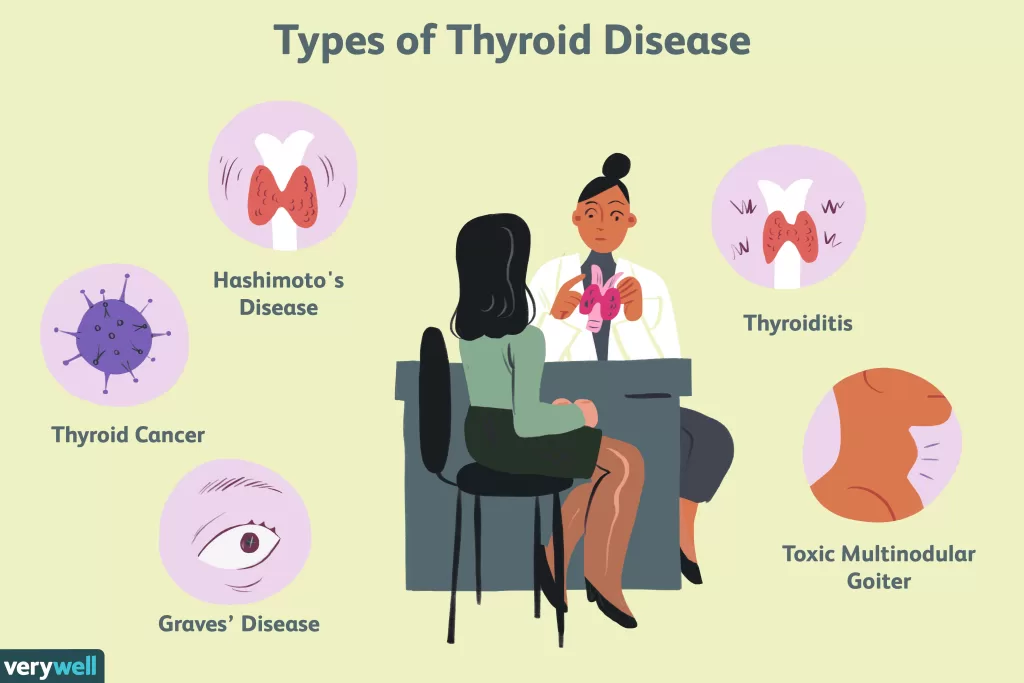Thyroid problems affect millions of people worldwide, yet many remain unaware of the signs they should watch for. Common symptoms such as fatigue, unexpected weight changes, and changes in mood can indicate underlying thyroid disease. Understanding the signs of thyroid problems, including hyperthyroidism signs like heat intolerance and hypothyroidism effects such as cold sensitivity, is essential for early detection and treatment. Additionally, knowing how these thyroid disease symptoms can impact your overall well-being allows for better management and improvement of thyroid health. In this guide, we will explore 19 signs of thyroid problems, giving you valuable insights and thyroid health tips to empower your journey toward maintaining optimal health.
Thyroid issues, often referred to as thyroid dysfunction, can manifest in various forms, affecting numerous bodily functions. This small gland, located in the neck, plays a pivotal role in producing hormones that regulate metabolism and energy levels. Conditions like hyperthyroidism, characterized by an overproduction of thyroid hormones, and hypothyroidism, marked by insufficient hormone levels, are common examples of thyroid disorders. Individuals facing these conditions may experience a range of symptoms such as cognitive decline, weight fluctuations, and significant fatigue. Addressing these concerns early on through proper evaluation is key to enhancing thyroid health and overall well-being.
Understanding Thyroid Problems
Thyroid problems encompass a range of disorders that affect the thyroid gland’s functionality. The thyroid is responsible for producing hormones that regulate metabolism, energy levels, and overall body functions. When the thyroid gland is either hyperactive (hyperthyroidism) or underactive (hypothyroidism), it can lead to various health complications. Common signs of thyroid problems include changes in weight, energy levels, and even mood swings, emphasizing the gland’s significant role in maintaining bodily balance.
Recognizing the signs of thyroid problems is essential for early intervention. Symptoms can manifest differently depending on the type of thyroid disorder—hyperthyroidism often leads to symptoms like rapid weight loss and increased heart rate, while hypothyroidism can present as weight gain and fatigue. Being vigilant about these symptoms allows individuals to seek medical advice promptly, which can help prevent more severe complications down the line.
Frequently Asked Questions
What are the common signs of thyroid problems?
Common signs of thyroid problems include fatigue, weight changes, brain fog, and mood swings. For instance, individuals with hyperthyroidism may experience weight loss and heat sensitivity, while those with hypothyroidism might notice weight gain and cold intolerance.
How do I know if I have signs of thyroid problems?
To identify signs of thyroid problems, monitor symptoms such as changes in appetite, sleep disturbances, and temperature sensitivity. Pay attention to other signs like dry skin and irregular periods, which could indicate thyroid disease.
What symptoms indicate hyperthyroidism signs?
Hyperthyroidism signs often include rapid weight loss, increased appetite, sensitivity to heat, and frequent bowel movements. If you’re also experiencing anxiety and sleep disturbances, it may suggest an overactive thyroid.
What are the effects of hypothyroidism on my health?
Hypothyroidism effects can lead to significant weight gain, fatigue, dry skin, and an increased sensitivity to cold. It can also cause mood changes, muscle weakness, and issues with menstruation.
Can thyroid health tips help prevent thyroid problems?
Yes, thyroid health tips such as maintaining a balanced diet rich in iodine and selenium, managing stress, and regular check-ups can help prevent thyroid problems and detect issues early.
What signs of thyroid problems should prompt a doctor visit?
Signs of thyroid problems that warrant a doctor’s visit include persistent fatigue, weight fluctuations, noticeable lumps in the throat, and severe mood changes. Early evaluation can lead to better management of thyroid disease.
How does thyroid disease affect metabolism?
Thyroid disease can drastically affect metabolism. Hyperthyroidism speeds up metabolism, resulting in weight loss, while hypothyroidism slows it down, which can lead to weight gain.
What can I do if I experience early warning signs of thyroid disease?
If you experience early warning signs of thyroid disease, such as fatigue or changes in weight, consult a healthcare provider for evaluation and potential testing of thyroid hormone levels.
Are there any lifestyle changes I can make to improve thyroid health?
Yes, lifestyle changes like incorporating a balanced diet, reducing stress levels, ensuring adequate sleep, and regular exercise can significantly improve thyroid health and mitigate symptoms.
What are thyroid nodules and are they a sign of thyroid problems?
Thyroid nodules are lumps in the thyroid that can be benign or cancerous; their presence may indicate thyroid problems. They require evaluation, especially if associated with other symptoms like difficulty swallowing or changes in voice.
| Sign/Symptom | Type of Thyroid Disorder | Description |
|---|---|---|
| Brain Fog | Hypothyroidism | Decline in cognitive function; trouble concentrating and forgetfulness. |
Summary
Thyroid problems can manifest in numerous ways, and it’s vital to recognize the signs. Early detection and diagnosis can lead to effective treatment, improving overall health. If you experience symptoms such as fatigue, weight fluctuations, or mood changes, consider reaching out to a healthcare provider. This proactive approach will enable you to manage thyroid problems efficiently.
The content provided on this blog (e.g., symptom descriptions, health tips, or general advice) is for informational purposes only and is not a substitute for professional medical advice, diagnosis, or treatment. Always seek the guidance of your physician or other qualified healthcare provider with any questions you may have regarding a medical condition. Never disregard professional medical advice or delay seeking it because of something you have read on this website. If you believe you may have a medical emergency, call your doctor or emergency services immediately. Reliance on any information provided by this blog is solely at your own risk.
